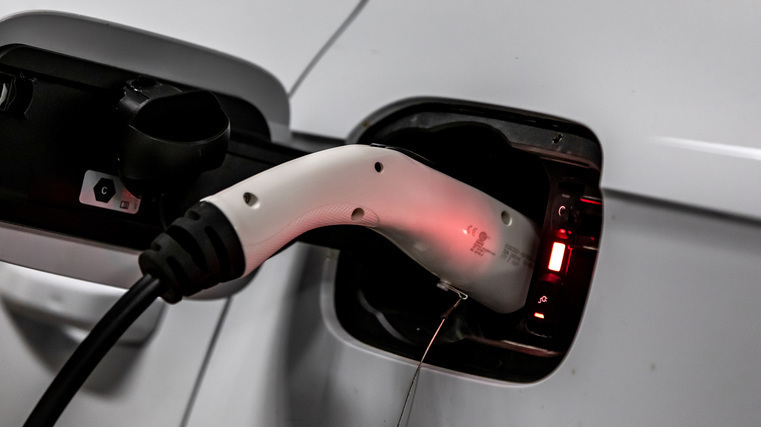Fleet scepticism with mandates

Zero-emissions mandates set by governments are being met with scepticism and a lack of trust by fleet operators, according to a Teletrac Navman survey.
The connected mobility platform for sectors that manage vehicle and equipment assets has announced findings of its annual industry survey. Key takeaways include:
• Less than half of respondents believe governments will follow through with planned zero-emissions mandates.
• Two-thirds of global fleets are currently operating battery electric vehicles, plug-in hybrids and fuel-cell EVs. However, switching still presents challenges with emerging technologies, high vehicle cost and limited public-charging points.
• Fleets list their top three expenses as unstable fuel costs, equipment and vehicle maintenance, and purchasing new equipment and vehicles.
• Driver wellbeing and safety technology is the number-one investment fleets are looking to make this year.
The 2024 Telematics Survey (TS24) sheds light on the industry’s latest trends and challenges, as well as the viewpoints of global operational leaders on topics including safety, AI adoption, alternative energy and this year’s biggest obstacles for fleets.
Taking data from more than 500 global fleet businesses, the annual report focuses on three key areas – sustainability, safety and efficiency.
When it comes to sustainability, fleets still lack credible information sources as challenges remain.
With 65 per cent of fleets feeling environmental pressure to transition to alternative energy, many are operating a multi-energy fleet or are about to begin their transition while still experiencing a lack of awareness and readily available, trustworthy guidance.
When seeking guidance on transitioning fleets to electric or alternative energy, one-quarter of respondents prefer advice from experts and 15 per cent would opt for dedicated training courses.
While the switch to alternative energy keeps rising on fleet operators’ agendas and a quarter of TS24 respondents name tackling rising fuel costs as a key motivation, challenges remain.
The frequency of emerging new technologies, high purchase cost of alternative energy vehicles and the limited availability of public-charging points have been identified as the top obstacles for businesses.
This is highlighted even further as 72 per cent of respondents state that ongoing cost pressures will likely delay their transition to EV or alternative energy vehicles.
In New Zealand and Australia, 69 per cent express doubts about their governments’ commitment to planned bans on fossil fuels, outnumbering the 46 per cent in the US who share similar doubts.
In the UK, while they feel environmental pressures, 56 per cent do not believe the UK government will go ahead with its planned s ban on fossil fuels.
Investing in wellbeing
Driver safety remains a top priority for fleets with half of the businesses surveyed monitoring and measuring driver behaviour, and 30 per cent of respondents planning on investing in wellbeing technology this year.
Seventy-three per cent of TS24 respondents have seen fewer accidents on the job since adopting telematics solutions, and the same percentage are actively rewarding motorists for better performance.
TS24 also found 71 per cent of respondents have seen improved performance through driver rewards programmes.
Incentivising drivers has become crucial for retention, especially in the face of economic challenges, such as the cost-of-living crisis. This data also aligns with the industry’s focus on driver well-being and a rising interest in recognition and rewards programmes to retain and support drivers.
More than half of the businesses surveyed – some 62 per cent – recognise cost-of-living crises impact on their drivers’ mental health. Teletrac Navman has seen a 110 per cent increase year-on-year in driver-appreciation activities, a 54 per cent increase in adopting reward programmes and a 52 per cent increase in the promotion to senior driver.
Rising fuel costs are considered in driver behaviour management as well, with a 33 per cent increase in businesses implementing new programmes to navigate rising fuel costs since last year.
TS24 also found businesses are working towards keeping up with the latest technologies to achieve streamlined operations.
With the top costs for fleets listed as fuel, followed by equipment and vehicle maintenance and purchase, 96 per cent of TS24 respondents say they have made measurable savings by implementing telematics across admin time savings, fuel savings and overall cost savings.
According to the industry-wide survey, asset visibility, meeting compliance regulations, and more efficient routing and dispatching are the top three benefits operators have seen since implementing telematics solutions.
Despite the 98 per cent adoption of telematics solutions, 43 per cent of businesses feel they are using these tools to their full potential.
While AI technology is beginning to grow in prevalence, the market is increasingly recognising the possibilities of data-led and machine-learning applications, with 47 per cent of TS24 respondents leveraging AI solutions. Click here to read the full survey report.





